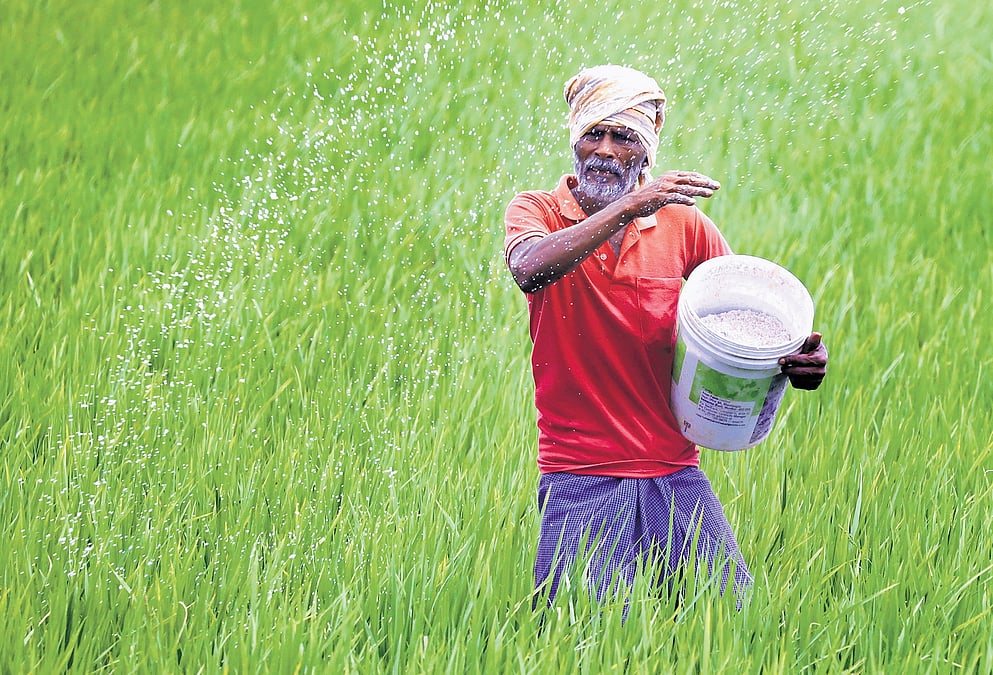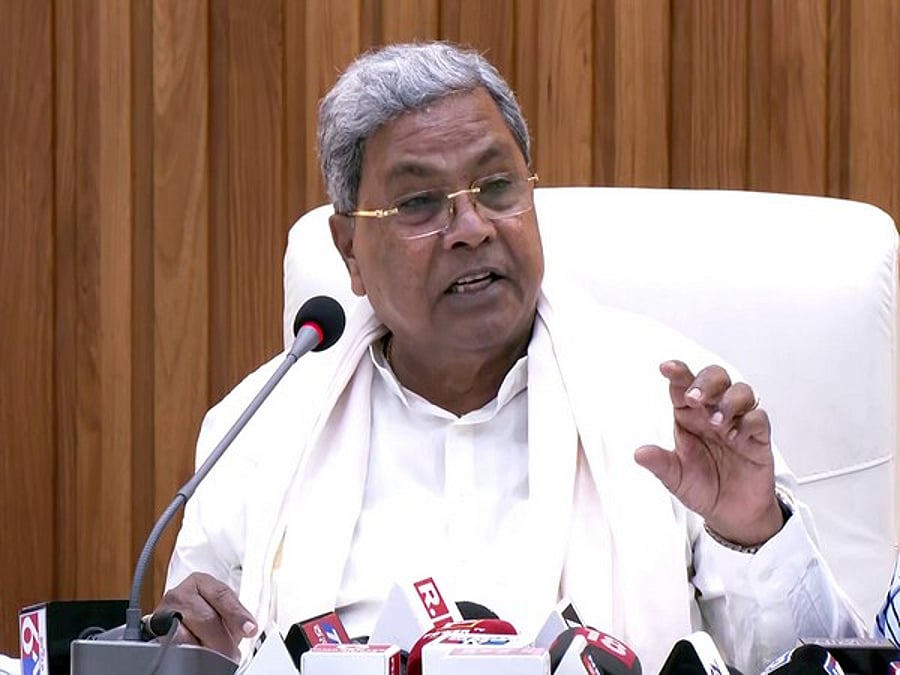The ongoing shortage of urea in Karnataka has escalated into a matter of grave concern for farmers, with the state’s Agriculture Minister stressing that the crisis is not limited to Karnataka but is a national issue. Addressing the media, the Minister acknowledged the frustration and distress faced by farmers who are struggling to secure adequate supplies during the critical sowing period. He emphasised that the state government is making all possible efforts to coordinate with the central government to ensure the smooth distribution of urea. However, the shortage continues to hamper agricultural activities, prompting urgent calls for resolution.
Farmers in several districts have reported long queues outside cooperative societies, often returning empty-handed after hours of waiting. The scarcity has led to a surge in black-market sales, where urea is being sold at inflated prices, further burdening already struggling agricultural households. The Minister explained that the supply crunch is largely due to logistical challenges and a mismatch between demand and supply, worsened by delays in transportation from manufacturing units. He urged farmers to remain patient and assured that fresh consignments are expected to arrive soon. Yet, the delay is taking a toll on crop health, sparking concerns over reduced yields and economic losses.
The political opposition has seized the opportunity to criticise the government, accusing it of failing to anticipate and prepare for the shortage. Leaders have demanded a transparent inquiry into supply chain inefficiencies and urged the government to establish better monitoring mechanisms. Farmers’ unions have staged protests across multiple districts, blocking roads and demanding immediate intervention. Experts warn that if the crisis persists, it could significantly impact the state’s kharif season output, leading to higher food prices in the coming months. The Minister reiterated his commitment to resolving the issue, calling for cooperation between all stakeholders to prevent further hardship.

Impact on Farmers
The shortage has disrupted the agricultural cycle at a crucial juncture, forcing farmers to delay planting or seek alternative fertilisers, which may not yield the same results. Many fear that without timely access to urea, crop productivity will decline, threatening their livelihoods. In regions dependent on rain-fed farming, the window for sowing is narrow, and any delay could result in total crop failure. The government has advised farmers to adopt balanced fertiliser use and explore organic alternatives temporarily. However, these suggestions have met with mixed reactions, as many argue that such solutions cannot substitute for urea’s immediate effectiveness in boosting crop growth.
Rural markets are witnessing heightened tensions, with local vendors unable to meet demand and facing accusations of hoarding. The rise of illegal sales networks is adding to the chaos, with middlemen exploiting the crisis for profit. Authorities claim to have conducted raids to curb these practices, but farmers allege that enforcement has been weak and selective. Agricultural officers are visiting affected villages to collect feedback and distribute limited stocks, but the scale of demand far outpaces supply. Civil society groups and NGOs have begun mobilising resources to support small farmers, providing training on sustainable practices that could reduce dependency on chemical fertilisers in the long term.
The Karnataka Agriculture Minister’s acknowledgment of the urea shortage as a national crisis has added weight to farmer protests across the state. In multiple rural pockets, fields lie half-prepared as sowing schedules are disrupted. Farmers who had hoped for an early sowing season now find themselves anxiously waiting for the next shipment of fertiliser. The delay risks derailing the entire kharif planting cycle, particularly for crops like paddy and maize, which require high nitrogen inputs during the initial stages. The mounting frustration has led to sporadic demonstrations in front of cooperative societies and block offices.
Across Mandya, Raichur, and Koppal districts, large gatherings of farmers have blocked highways to demand immediate supply. Protesters have accused authorities of failing to prioritise rural needs despite repeated assurances. Police deployment at some protest sites indicates the administration’s awareness of the growing tension. Yet, farmers claim that verbal assurances without actual deliveries have little meaning when their crops are at stake. Some leaders from farmers’ unions have called for a state-wide bandh if the situation does not improve within the week. The sentiment on the ground is one of mistrust, with many blaming both state and central governments for poor coordination.
Local reports from northern Karnataka suggest that some farmers have resorted to buying substandard or adulterated fertiliser from unverified sources. This desperation not only increases costs but also risks damaging the soil and harming crops in the long term. Agricultural experts have issued warnings about the irreversible effects of using such inputs. The lack of regulatory enforcement in rural markets has made it easier for unscrupulous traders to profit from the crisis. Farmers have urged the government to crack down on these illegal sales and ensure only authorised dealers are permitted to distribute urea.

The Minister’s statement placing responsibility on national factors has triggered political sparring in the legislative assembly. Opposition members have accused the ruling coalition of shifting blame rather than finding solutions. They argue that while national challenges exist, efficient state-level planning could have reduced the severity of the shortage. Demands for an emergency assembly session to address the fertiliser crisis have gained momentum. Several MLAs from agricultural constituencies have expressed fears that if the problem is not solved promptly, farmer suicides could increase due to financial strain and crop losses.
While state authorities await shipments from the central allocation, some districts have begun rationing urea distribution. Farmers are being asked to provide land records and cropping details before receiving limited bags per household. This move has drawn criticism, as it forces farmers to make multiple trips and still leaves them with less than their actual requirement. Cooperative societies say they are following government instructions but acknowledge that tempers are rising as the gap between supply and demand widens. In some cases, farmers have had to borrow from moneylenders to buy fertiliser at black-market rates, deepening rural debt burdens.
The shortage’s impact on agricultural productivity could extend well beyond the current season. Experts warn that delayed fertilisation will lead to stunted crop growth, lower yields, and reduced incomes for farming families. Such losses would have a cascading effect on the state’s rural economy, affecting everything from food supply to local markets and allied industries. The Minister has appealed for calm, stating that the central government has assured Karnataka of additional allocations in the coming weeks. However, without clear timelines, farmers remain sceptical and anxious about the fate of their crops.
National Dimension
The Minister’s statement framing the crisis as a national problem has sparked a wider conversation about India’s fertiliser management system. Other states, including Maharashtra, Telangana, and Madhya Pradesh, have reported similar shortages, highlighting systemic issues in distribution planning. Experts attribute part of the crisis to over-dependence on imports and inadequate domestic production capacity. Additionally, rising global prices for natural gas, a key input in urea production, have constrained supply. While the central government maintains that it is taking steps to stabilise availability, the situation on the ground tells a different story. Farmers’ groups are urging for a decentralised approach that empowers states to manage their own distribution channels.
Discussions are underway to explore alternative fertiliser options such as DAP and NPK blends to partially offset the shortage. Agricultural extension officers are conducting workshops in affected areas to teach farmers how to make organic compost and bio-fertilisers at home. While such measures are valuable for long-term sustainability, they cannot replace the immediate need for urea during the crucial sowing window. Farmers have expressed mixed reactions, with some open to trying alternatives while others dismiss them as impractical for large-scale farming. The divide reflects the urgent need for both short-term relief and long-term resilience strategies.
The central government’s fertiliser ministry has stated that logistical delays at ports and railways are to blame for the disruption in supply chains. Officials say efforts are being made to speed up movement from production plants to states, with priority being given to high-demand regions. Critics argue that such explanations do little to address the reality that farmers are facing right now. Many agricultural economists believe that unless India invests in increasing domestic production capacity and reducing dependence on imports, similar crises will recur year after year.
Amid the chaos, some farmer cooperatives have begun pooling resources to arrange bulk purchases from neighbouring states. This collective approach has met with partial success in border areas but remains limited by transportation costs and inter-state restrictions. NGOs and charitable groups have also stepped in, providing small quantities of fertiliser to the most vulnerable farmers. These interventions, while helpful, are far from sufficient to address the statewide scale of the problem. Farmers are calling for structural reforms rather than piecemeal solutions that leave them vulnerable to similar shortages in the future.
The situation has also sparked debates among environmental groups, who argue that the crisis is a chance to accelerate the transition to sustainable agriculture. They advocate reducing dependency on chemical fertilisers altogether in favour of organic farming methods. While this vision aligns with long-term environmental goals, it faces practical challenges given the current market realities and farmers’ reliance on urea for quick, predictable results. The ongoing shortage has become more than just an agricultural issue—it is now a test of political accountability, administrative efficiency, and the resilience of Karnataka’s farming community.
Follow: Karnataka Government
Also read: Home | Channel 6 Network – Latest News, Breaking Updates: Politics, Business, Tech & More

